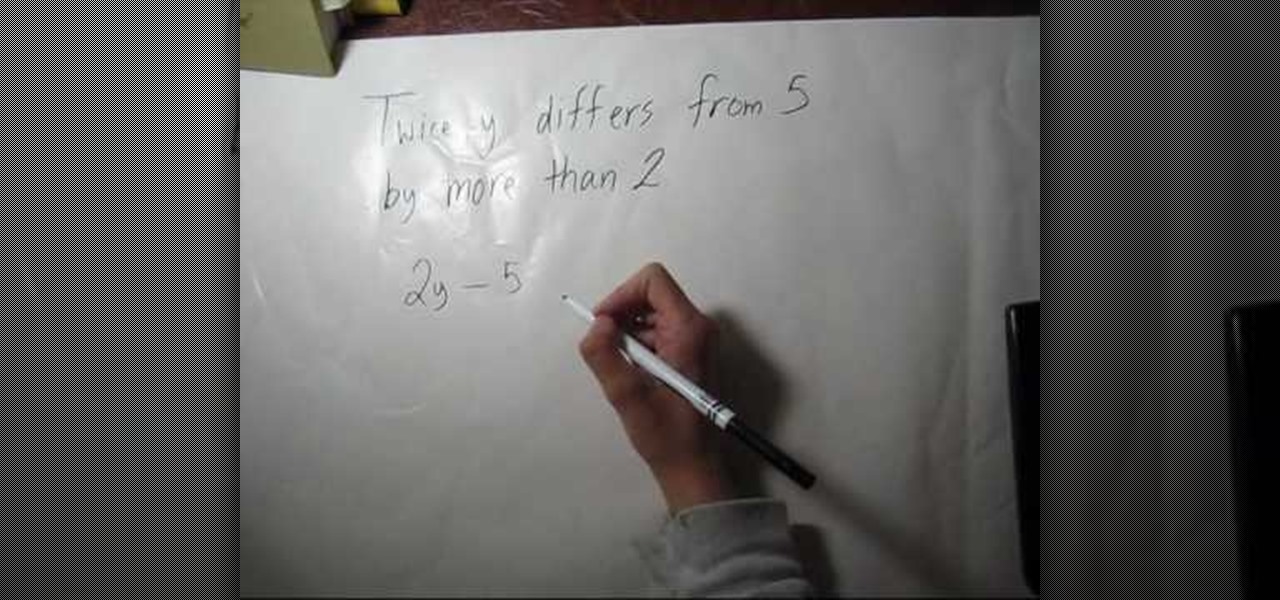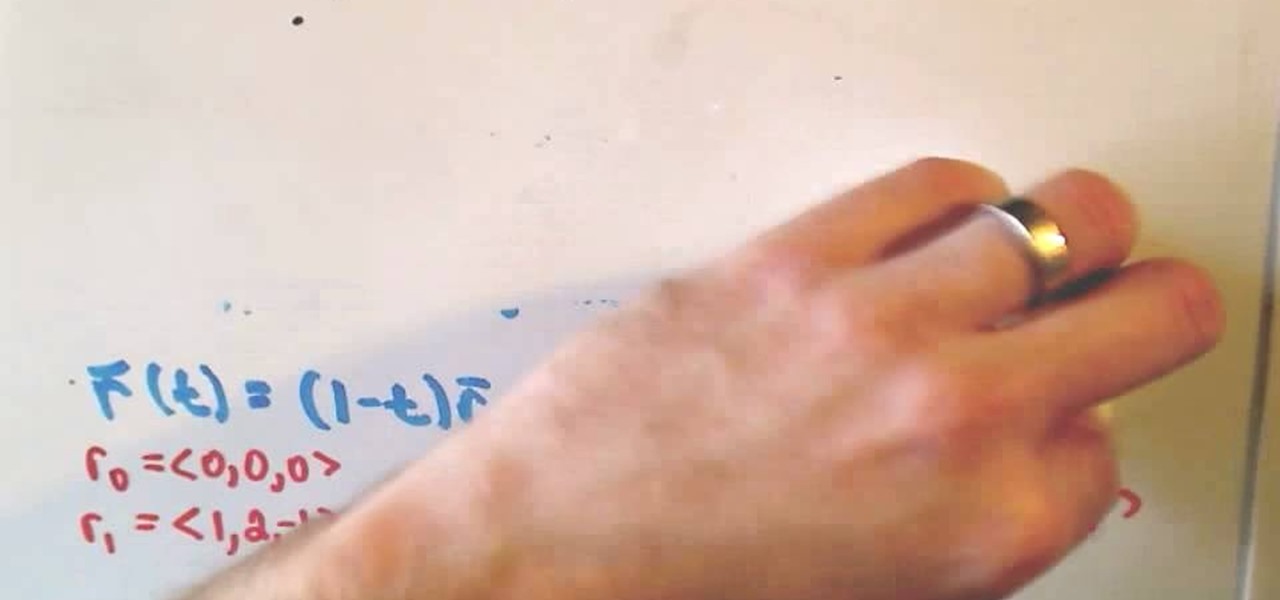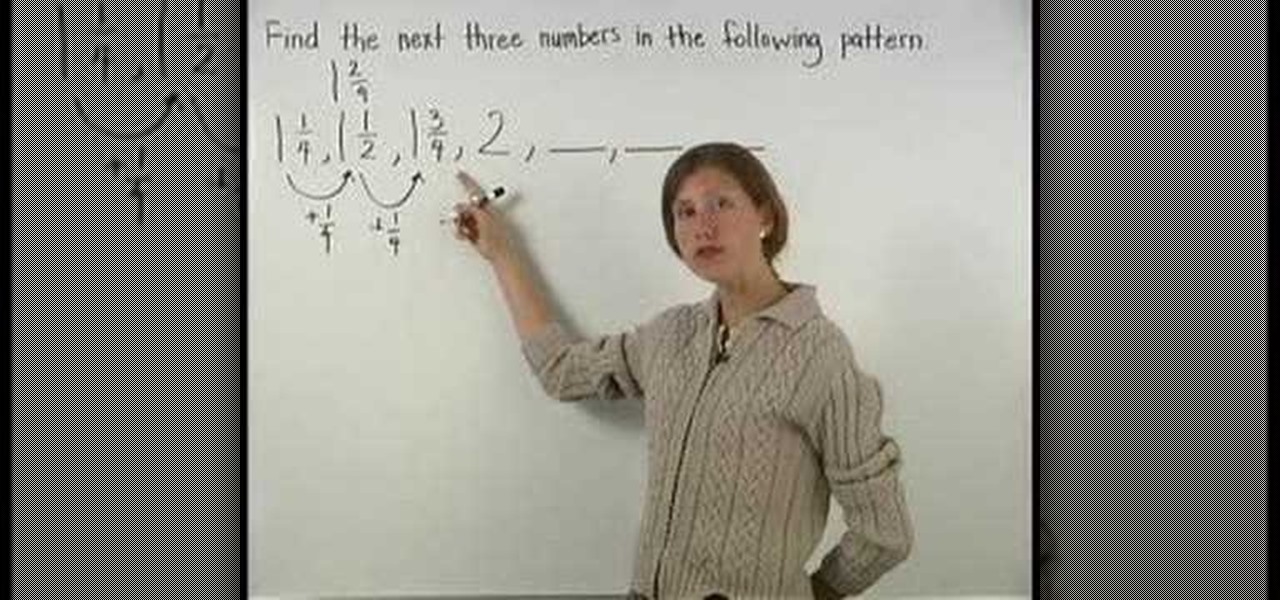Math How-Tos

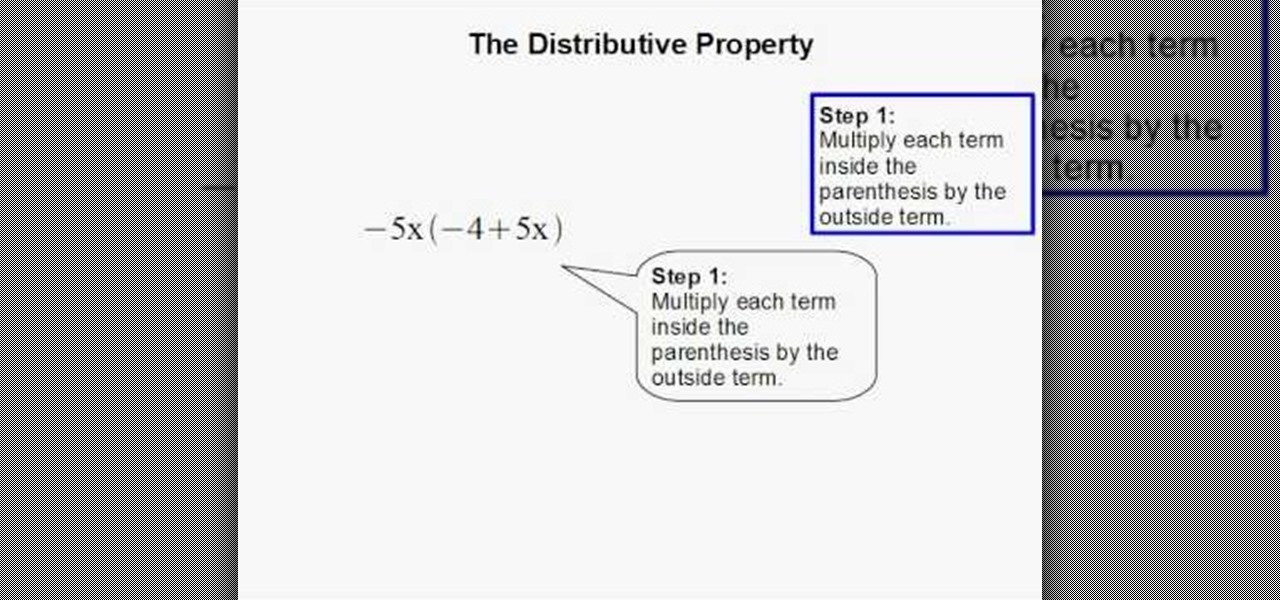
How To: Apply the distributive property in math
To solve simple algebraic expressions you have to use different properties. Distributive property is one among them. To apply distributive property in a algebraic expression multiply each term inside the parenthesis by the outside term. In this way you are distributing the outside term to all the inside terms and removing the parenthesis. Hence it is called distributive property. After multiplying add the like terms to simplify it further. Care should be taken to ensure the proper sign change...

How To: Use curve sketching to solve equations in calculus
PatrickJMT takes you through step by step on the basics of how to use curve sketching to solve calculus equations. Steps that are covered in this two part video include domain, intercepts, symmetry, horizontal and vertical asymtotes, intervals of increase/decrease, local maximums and minimums, concavity and points of inflection, and finally the sketch. A rational function is looked at as an example. The problem is to graph y equals (x - 1) divided by x to the power of 2. This video clip cover...

How To: Solve multi-step and compound inequalities
Multi-Step inequalities are inequalities which take more than one step in solving them. You need to follow a step by step approach in solving these kind of problems. Through there is no general method to solve them you can follow a set of guidelines. First thing you have to do is make sure that only x terms remain on the left hand side of the equation. If there are any other numerical terms add the negative of that term to both the sides of the equation to eliminate it on the left hand side. ...
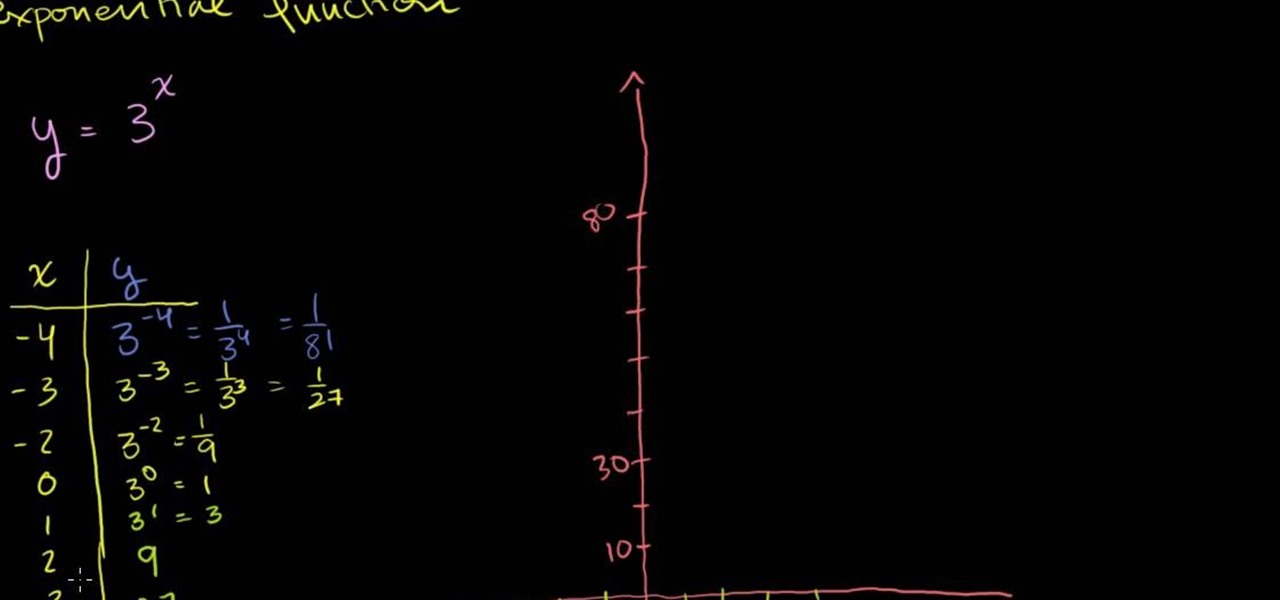
How To: Work with exponential growth functions in mathematics
Exponential functions are functions which contains terms which are integers raised to the power of variables. Note that the variables are not raised to the power of integers, but the integers are raised to the power of variables. Variables raised to the power of integers are called as polynomials and are a different class of functions. But exponential functions grow very fast than polynomials with the increase in the value of the variable. To understand the growth of these functions take a si...

How To: Find the volume of a cube, cylinder, pyramid or cone
This video shows the method to find the volume of a cube, cylinder, pyramid or cone. Volume is equal to the multiple of the area of the base and the height or V=(base area)(height). Starting with the cube, the volume= [(side)(side)](side) or side cube or side^3. In the video side=50m or V=125000 cubic centimeter. Volume of the cylinder= [(pi){(radius of base)^2}](height of cylinder) or V=(pi)(r^2)(h). Substituting the values, V=pi(2^2)(4) cubic inches or 16pi cubic inches. Volume of a pyramid...

How To: Solve equations with algebraic variables on both sides
In basic algebraic equations all the variables are on left side of the equation. But as the complexity of the problems increases you will find that the equations will contain variables on both sides of the equation. To solve these kinds of problems first simplify the equations on each side of the equation. You can use the distributive law to do this. Next try to cancel the variable on the right side of equation by adding the negative value of that variable to both the sides of the equation. N...

How To: Prove a triangle inscribed in a circle is right angled
When a triangle is inserted in a circle in such a way that one of the side of the triangle is diameter of the circle then the triangle is right triangle. To prove this first draw the figure of a circle. Now draw a diameter to it. It can be any line passing through the center of the circle and touching the sides of it. Now making this as the side of a triangle draw two lines from the ends of the diameter to a point on the circle. Now join the center of the circle to the other vertex of the cir...
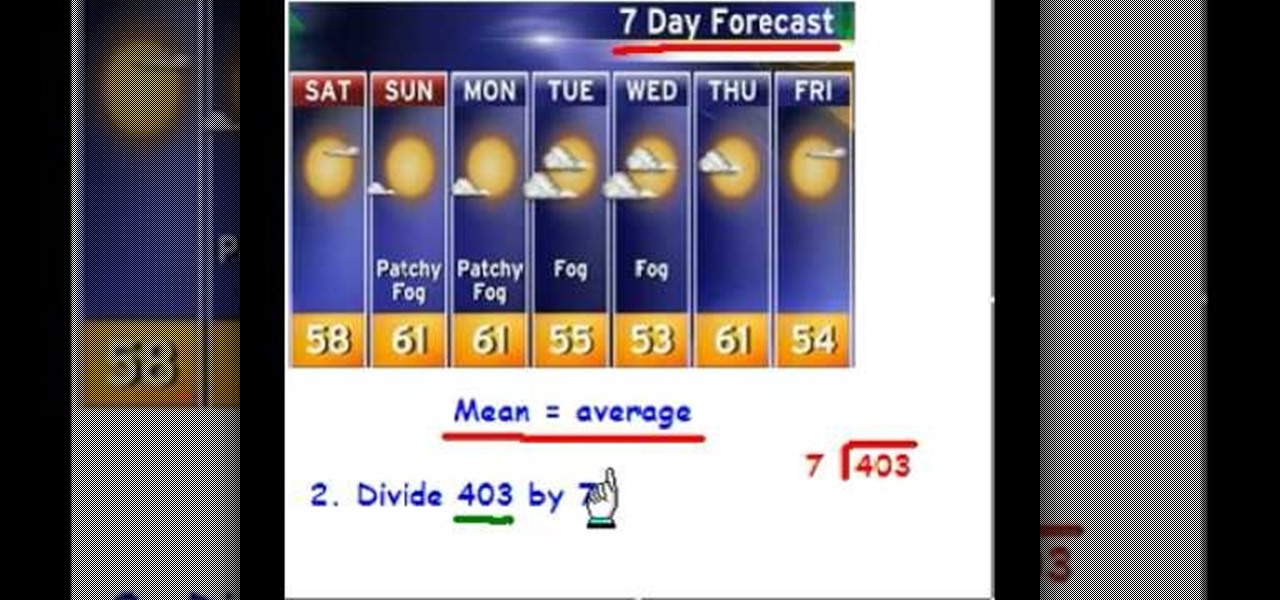
How To: Find the mean o a set of numbers
"Mean" is really the average on a set of numbers. The video uses the temperatures on a weather report as an example of a data set. Start by adding the temperature numbers of the week up. After you have the total, divide that number by 7, because you used 7 numbers in your data set. The answer that you get after dividing will have a few decimal places at the end of it. You can round the answer to the nearest whole number because all the numbers from your original data set do not have any decim...
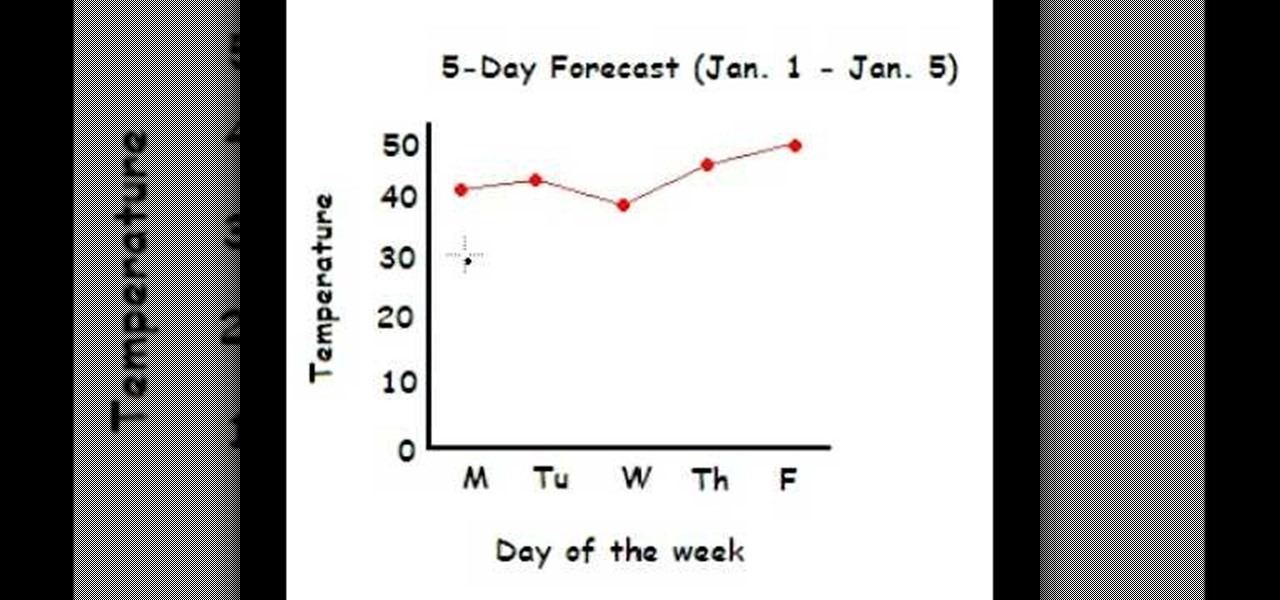
How To: Create a line graph
This video shows the method to make a line graph. First step involves drawing a horizontal and vertical line joined at one end. We have to plot the maximum and minimum temperatures during 5 days. Label the vertical with the temperatures(10, 20, 30...50) and the horizontal line with the days of the week(Monday....Friday). Label the vertical line as 'Temperature' and the horizontal line with 'Day of the week'. Plot the temperatures selecting the day from the horizontal line and marking at the c...

How To: Add rational numbers
Learn how to add rational, or fractional, numbers by following the tutorial in this video. In the case of fractions where the denominators are the same, the addition is simple: you simply add the numerators and keep the denominator the same. When the denominators are not the same, you need to find the least common denominator (or multiple). Take a look at your denominators and test different numbers to find the smallest multiple of the two. Then, convert the two original fractions so that the...
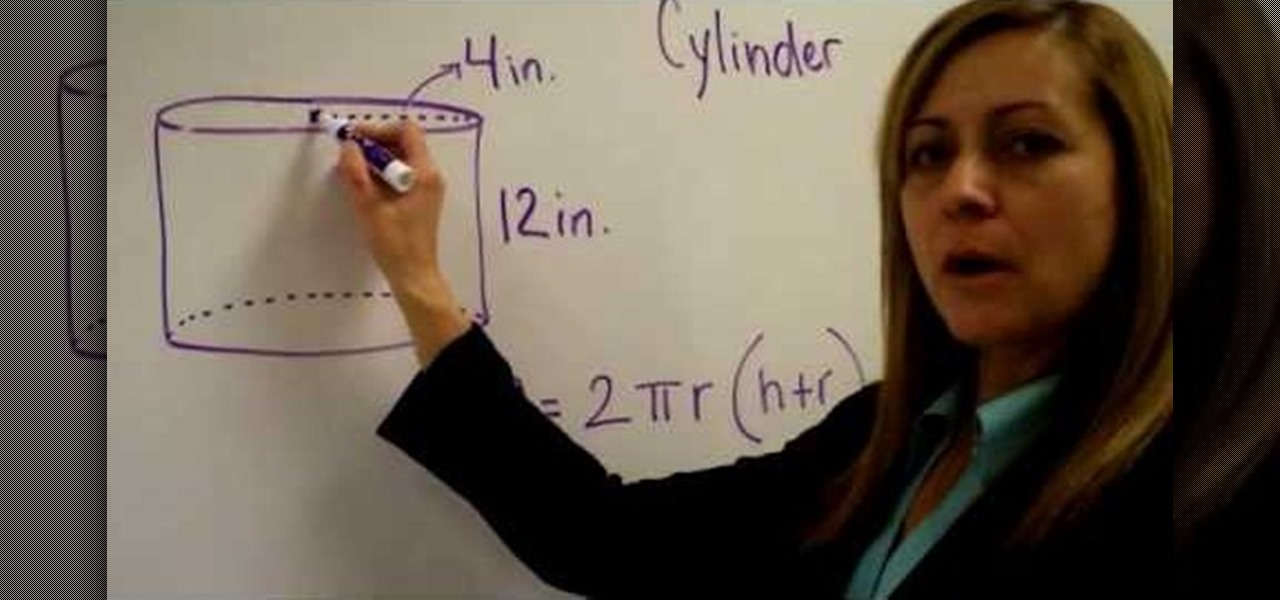
How To: Find the surface area of an aluminum can or cylinder
This video tells us the method to find the surface area of an aluminium can or cylinder. The surface area includes the outside area of the curved portion and the aluminium top and bottom. The formula to find area is the multiple of 2, pi, r, r+h or (2)(pi)(r)(r+h). The radius of the cylinder is the radius of the circular top or bottom. In the example shown in the video, the radius is 4 inches and the height is 12 inches. Substituting the values in the formula, we get the surface area as (2)(3...
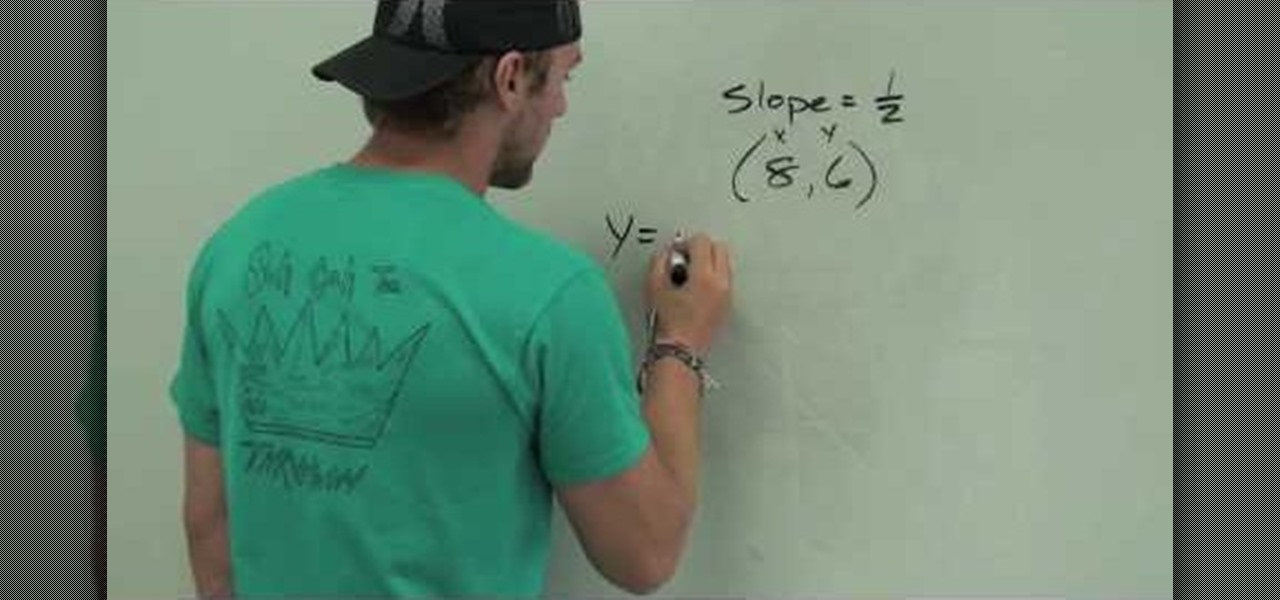
How To: Write and graph an equation in slope intercept form
This video teaches us the method to write an equation in slope intercept form and to graph it. The equation of line is y = mx + c. m is the slope and c is the y intercept or the point where it crosses the y axis. Let us find the equation of line if it crosses (8,6) and m=1/2. Substituting the values of x,y and m we get 6=(8)(1/2)+b. Simplifying we get b=2. Substituting the values in the equation of line, we get y = m/2 + 2. Suppose we want to find the x coordinate of a point on the line given...

How To: Divide rational numbers
Khanacademy tackles problems involving multiplicative inverse (i.e. taking the number one and dividing it by that number) and dividing rational numbers in its simplest form (lowest common form).
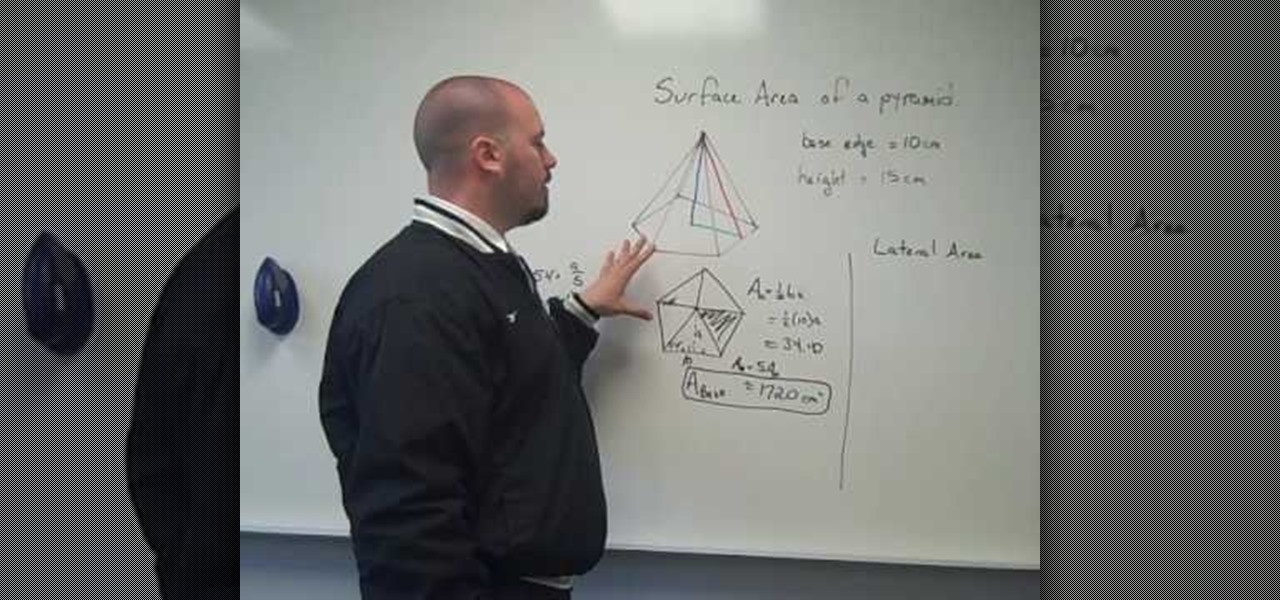
How To: Find the surface area of a pyramid with BabelMath
A pyramid is a three dimensional figure with the base in the form of a triangle and three slant sides to it. To find the surface area of a pyramid you have to find the area of the different pieces that make it up. The pyramid base can be triangle or even other geometric figure like pentagon. So first draw the base of the pyramid separately and compute its area first. Now compute the area of each sides separately. The area of each side can be same if the pyramid is a regular pyramid. Some time...
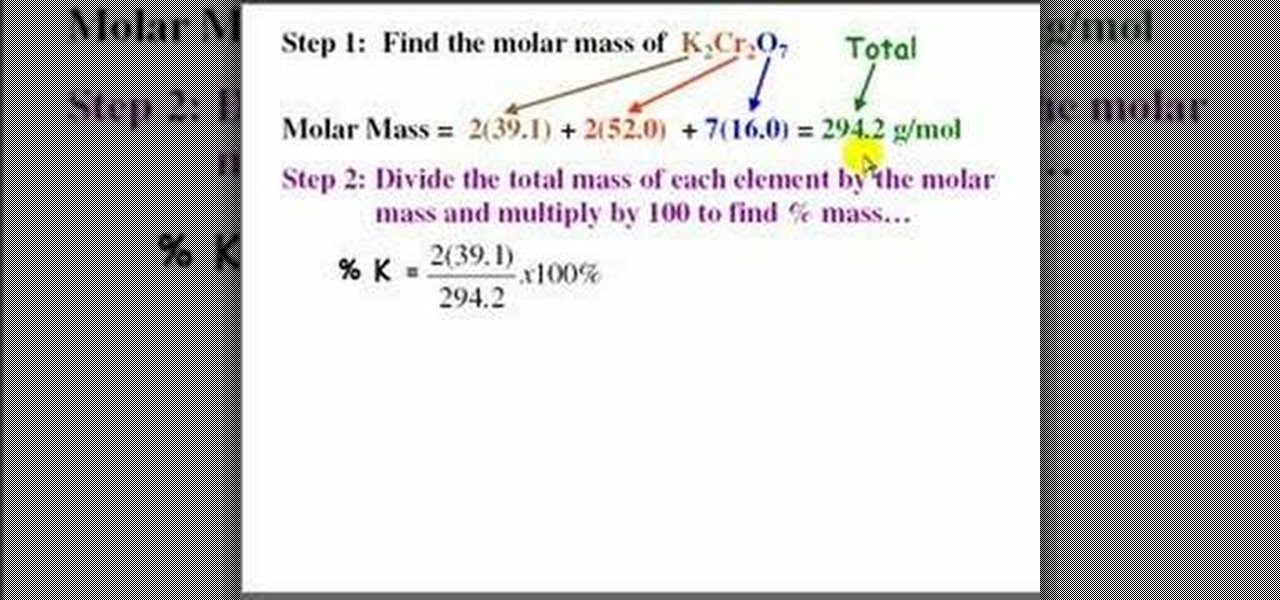
How To: Find percent by mass & percent composition
In chemistry you come across problems which ask you to find the percent by mass and percent composition of each element in a chemical compound. To do this the first step is to compute the molar mass. Use the periodic table to look up the mass of individual atoms and multiply it by the number of atoms to find the mass of that element. Now add up all the masses to arrive at the molar mass of the compound. Now to find the percent composition of an element divide the total mass of each element by...

How To: Graph a system of linear equations
Given a equation of a line, you can graph the line. A system of equations is nothing but equations of more than one line. In a single equation all the points that lie on the line, satisfy the equation of the line. Similarly a solution of a system of equations is points that satisfy each and every equation of that system. A system of equations can have a single point as solution when the lines intersect at a common point, or have a unlimited points in solution when the lines overlap on each ot...
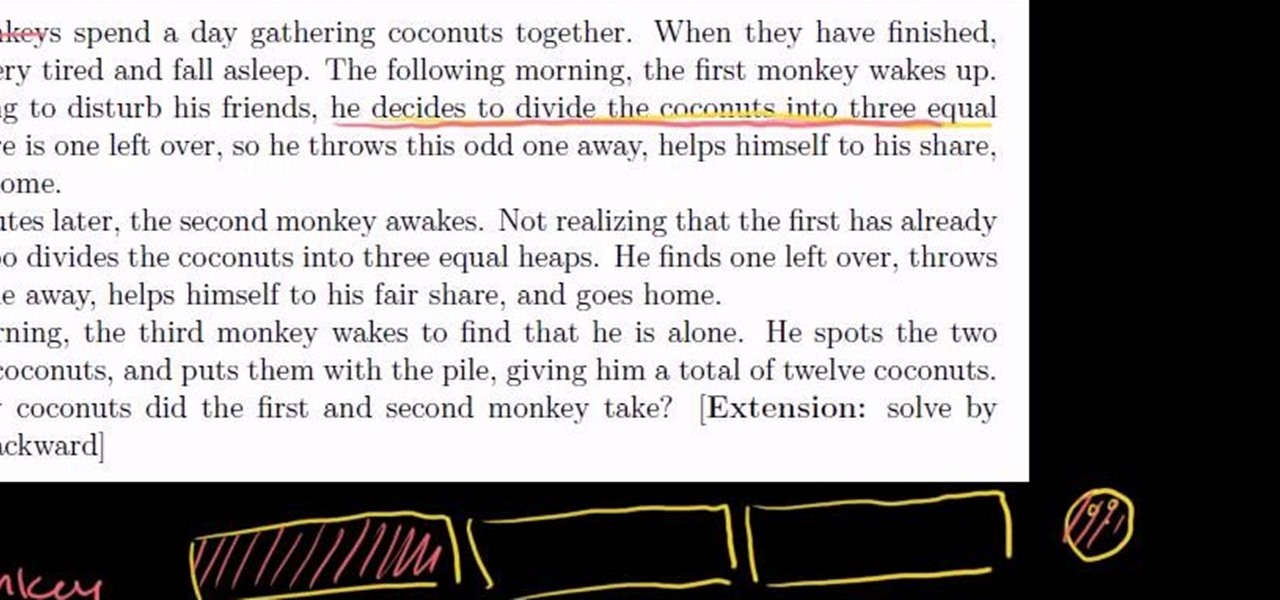
How To: Mutliply rational numbers and understand word problems
Rational numbers are numbers that can be expressed in the form of a/b, where a, b are integers and b is not equal to zero. Rational numbers are also called as fractions. Multiplication of fractions is very simple and straight forward. Two multiply two fractions a/b, c/d first multiply both the numerators to arrive at the new numerator. Next multiply both the denominators to arrive at the new denominator. Now the new fraction can be further simplified to arrive at the solution. Note that you a...
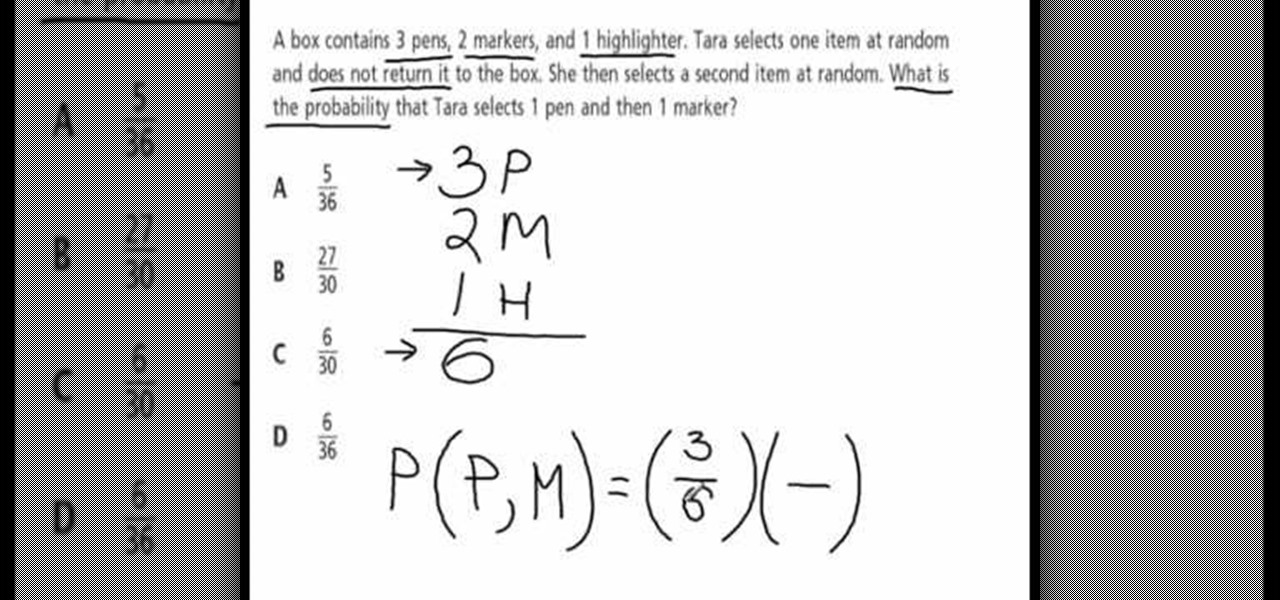
How To: Calculate the probability of two dependent events
This video explains how to solve the problem of probability dependent events. In this video the problem is that a box contains three pens, 2 markers, and 1 highlighter. The person selects one item at random and does not return it to the box. So what is the probability that the person selects 1 pen and 1 marker. That is 6 items total. First she count the all items that involved in this problem. Then count the individual probability of the pen and marker. The person selects 3 pens out of 6 item...

How To: Solve inequalities by using addition and subtraction
Khanacademy teaches us how to handle simple inequalities (less than or more than). In an equation, we usually have one solution. In problems involving inequalities, there is a whole set of answers. For instance, x minus five is less than 35. The answer for x is a whole series of numbers that when five is taken away from it, is less than 35. This equation is handled like any other equation involving an equal sign. We add five on both sides of the equation and the answer for x is any number tha...

How To: Find oblique asymptotes of rational functions
This is a great instructional video on how to find oblique asymptotes of rational functions. Let us take the example f(x)= x square+4x-12 over x-6. Now we have to find the horizontal or oblique asymptotes of this rational function. The higher power here is x square which is at the top and hence we have to find oblique asymptotes of this function.When we divide x square+4x-12 by x-6 we get x=10 and the reminder is 48. Now you can easily write down the final answer. The oblique asymptote for th...

How To: Calculate weight if given the mass
The video shows how to calculate weight if the mass is given and vice versa.Later on in this unit you will learn about Newton's laws of motion and Newton's second law of motion gives us a way to change mass into weight and vice versa.This law will tell you what is happening to objects when the net force on the object is not equal to zero and the easy way to say what will happen is that the object will accelerate.But how much the object accelerates depends on two things,firstly the mass of the...
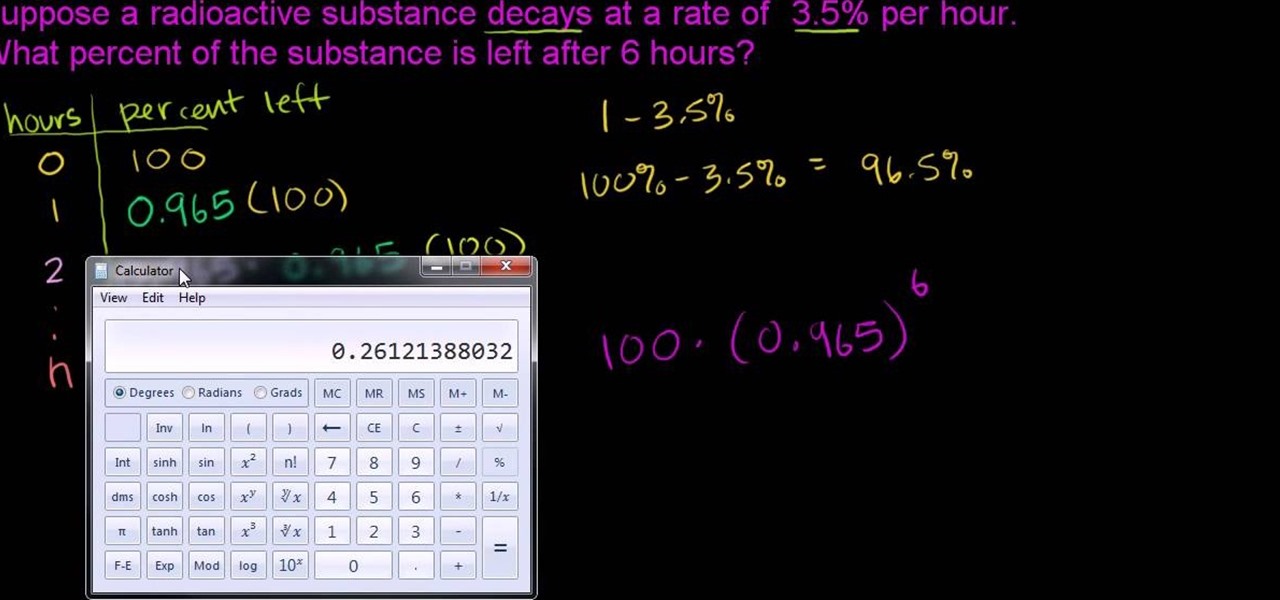
How To: Solve word problems involving exponential growth/decay
The first problem that is show is exponential decay. First you will need to create a table with hours and substance left. The next step is to find the trend by noting that we are left with a certain percentage of the substance. One you have the trend you will use this to calculate the amount of substance left in said hours, in this case 6 hours. The following example shows you how to solve exponential growth. It is essentially the same except for the fact that you will be increasing, so inste...

How To: Change fractions to decimals using decimal division
This video is about changing fractions to decimals. The teacher uses 1/2 and 1/3 as his examples. The first one, changing 1/2 to a decimal. First step is to divide your denominator into your numerator. So, you divide 2 into 1 and add the decimal to your 1 because 2 does not go into one as a whole. Add a zero after your decimal. Put your decimal above, as well. Then, divide 10 by 2, which equals 5. Your answer goes above the last numeral (the 0), which gives you .5 .

How To: Graph linear inequalities
Solving the Inequalities using graph, first you have to take the inequality equation into equal. Then convert the equation into straight line equation i-e(y=mx+c). Giving own values for 'x' like (-1, 0, 1) we would get the value for 'y'. By plotting these points in the graph, you will get an straight line. If the given equation is greater than symbol, shade towards the positive part. If the given equation is smaller than symbol, shade towards the negative part. This is an one method to solvin...

How To: Simplify square roots in less than a minute
A square root of a number is a value which when multiplied to it self gives you the original number. The square roots of perfect squares are whole numbers. Like square root of 9 is 3, because 3 times 3 is 9. Similarly square root of 81 is 9 because 9 times 9 is 81. Others numbers do not have a perfect square root and in those cases you can only simplify the number to an extent. So to find out the square root of any number first you need to factorize that number. Factorize the number into smal...
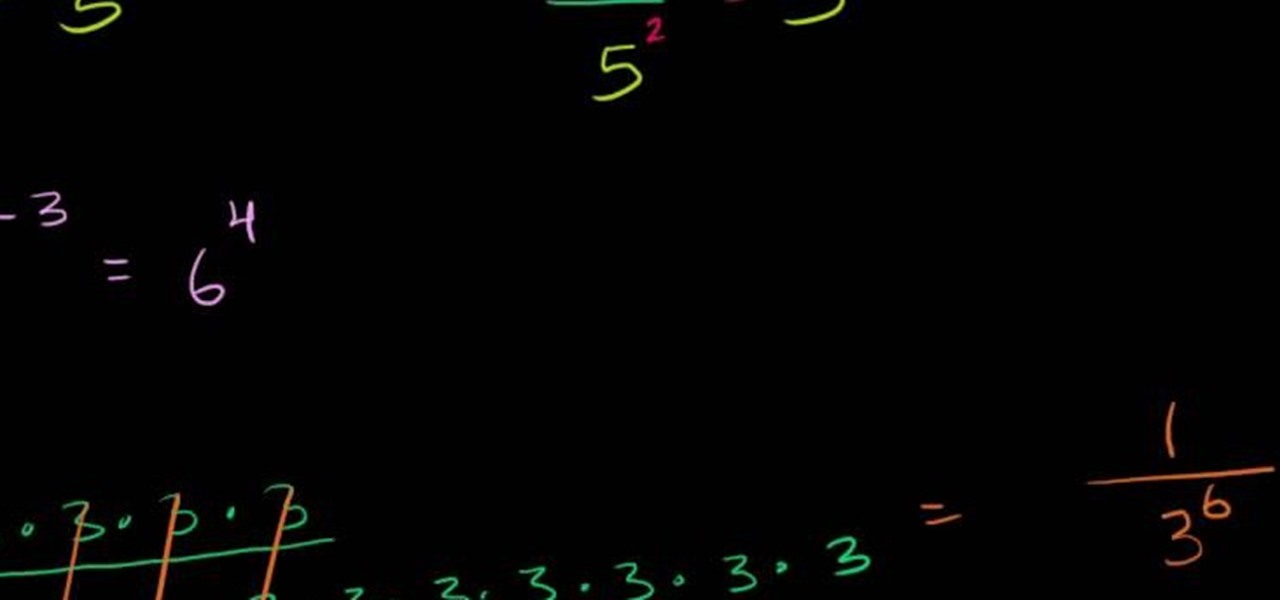
How To: Divide exponents with the quotient rule
Exponent of a number is nothing but the number multiplied to it self the exponent number of times. So five squared it equal to five multiplied to it self. Now when an exponential number is divided with another such number the result is the number raised to the different of the exponents. That is the ratio of x raised by a to x raised by b is x raised to (a-b). Similarly if we multiply a exponential number with other such number, the result is equal to that number raised to the sum of exponent...
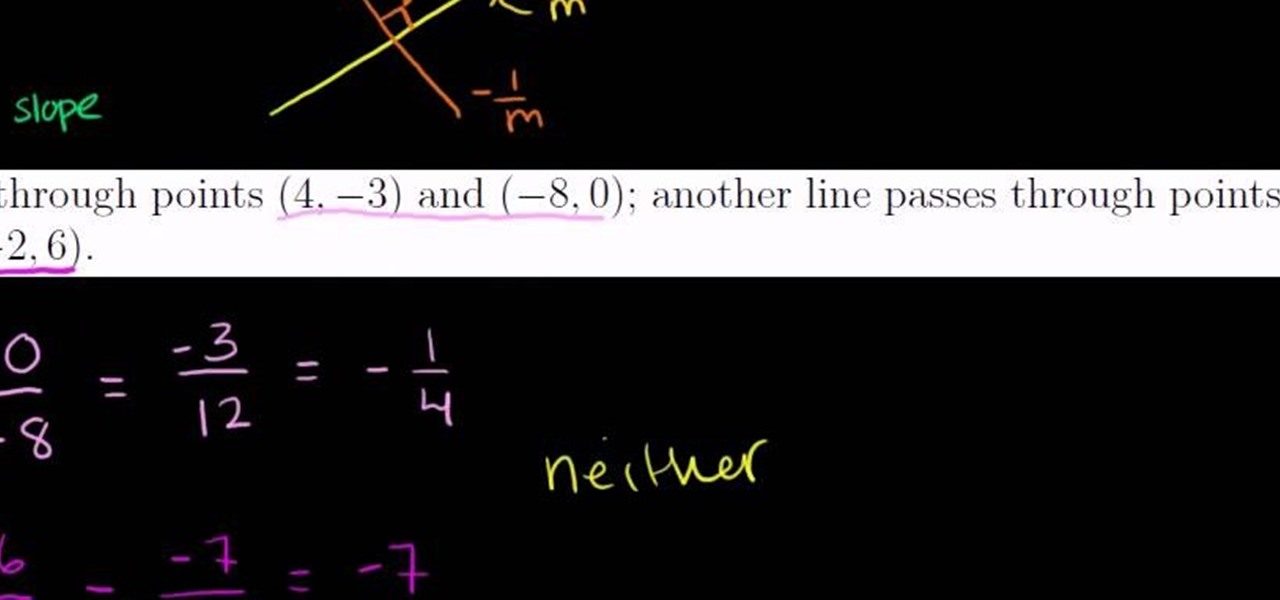
How To: Find the equations of parallel and perpendicular lines
A pair of straight lines can be parallel lines or perpendicular lines or neither. Two lines are said to be parallel when their slopes are equal. Two parallel lines never intersect each other. On the other hand two lines are perpendicular when the product of their slopes is equal to -1. Two perpendicular lines intersect only once and at right angles. So when you are given two lines and asked to find if they are parallel or perpendicular lines, first compute the slope of the lines. Identify two...
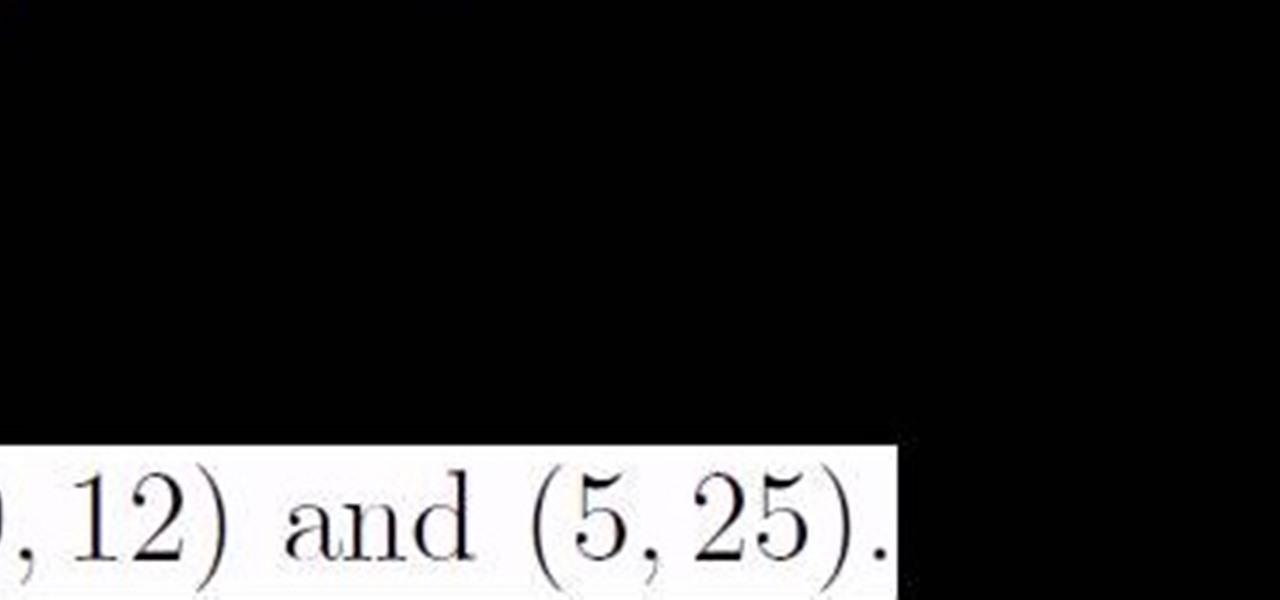
How To: Find the equation of a line in point-slope form
When you are given a point through which a line passes and the slope of that line, you can calculate the equation of that line. The general equation to solve this kind of equations is called as point-slope form. The point slope of a line passing through (a, b) with slope of m is (y - b) = m * (x - a). Now substituting the values in the above equation you can obtain the equation of the line in terms of x and y. In case you are given with two points first find the slope of the line which is the...
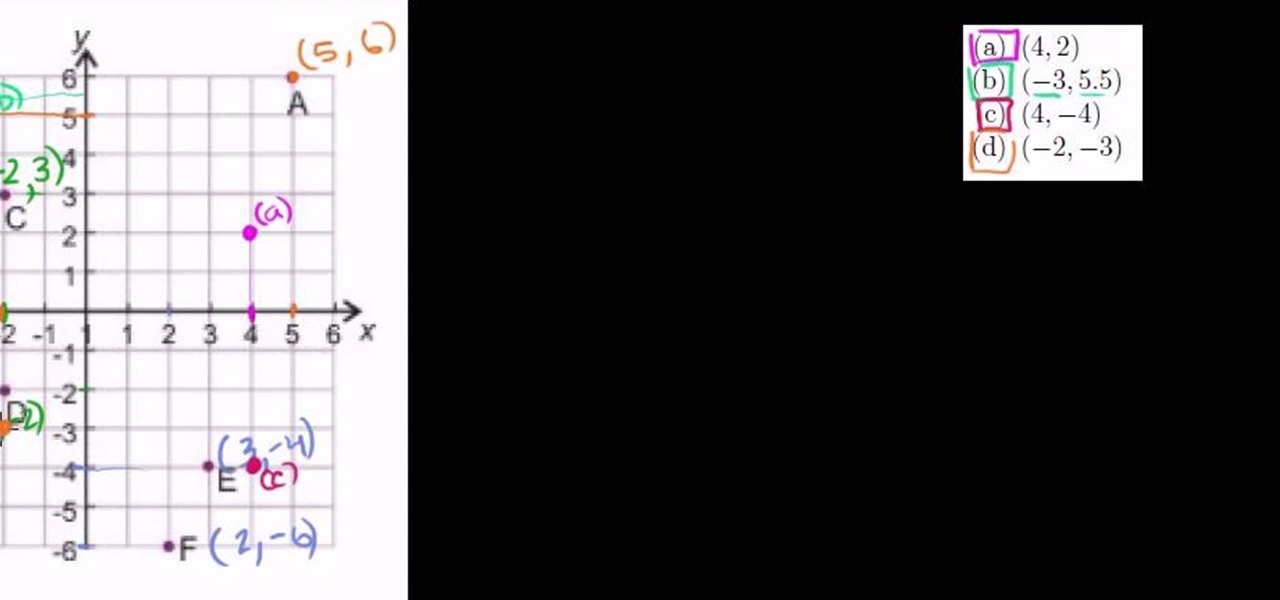
How To: Work with the coordinate plane in algebra
This video tells us the method to work with the coordinate plane in algebra. The first step tells us the method to determine the coordinates of a given point on the coordinate plane. For this, go parallel to the x axis from the given point and see where it intersects the y axis. This is the y coordinate. Again, go parallel to the y axis from the given point to the x axis. The point of its intersection with x axis is the x coordinate. Now we have the coordinates and we have to find the points ...
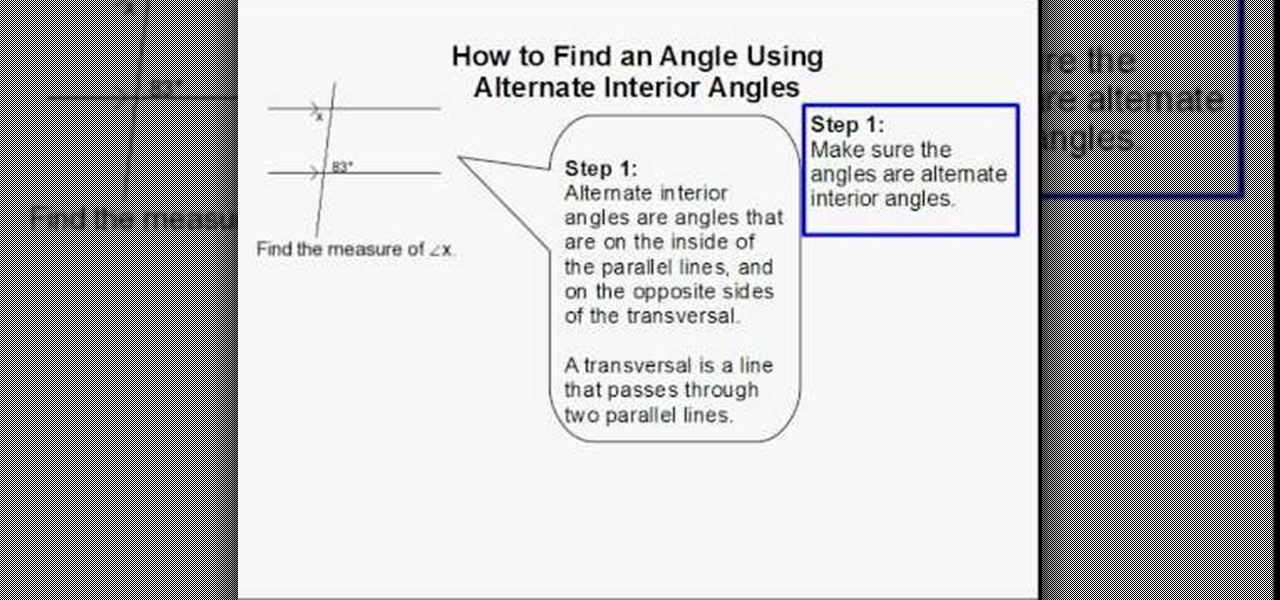
How To: Find an angle using alternate interior angles
In this video tutorial, viewers learn how to find an angle using alternate interior angles. Make sure that the angles are alternate interior angles. Alternate interior angles are angles that are on the inside of the parallel lines, and on the opposite side of the transverse. The transverse is the line that passe through the two parallel lines. If both angles are inside the line and are opposite to the transverse, then they are alternated interior angles. If you know two angles are alternate i...
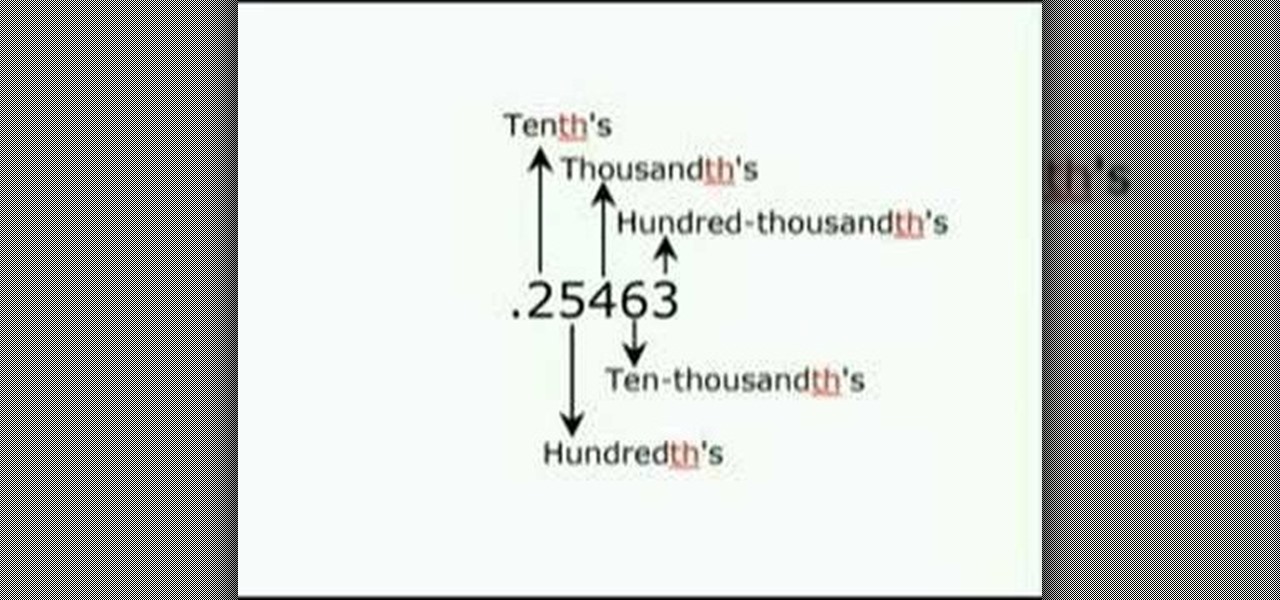
How To: Properly read a decimal number
Decimal numbers are numbers which contain a integral part before a point and a decimal part after the point. The first step in solving decimal arithmetic is being able to understand decimal numbers. Reading a decimal number is similar to reading a whole number except for a few minor differences. In a normal number the right most digit is ones place and the place next to it is tens place and so on the value of the position increases as you move left. But a decimal number starts from a tenths p...
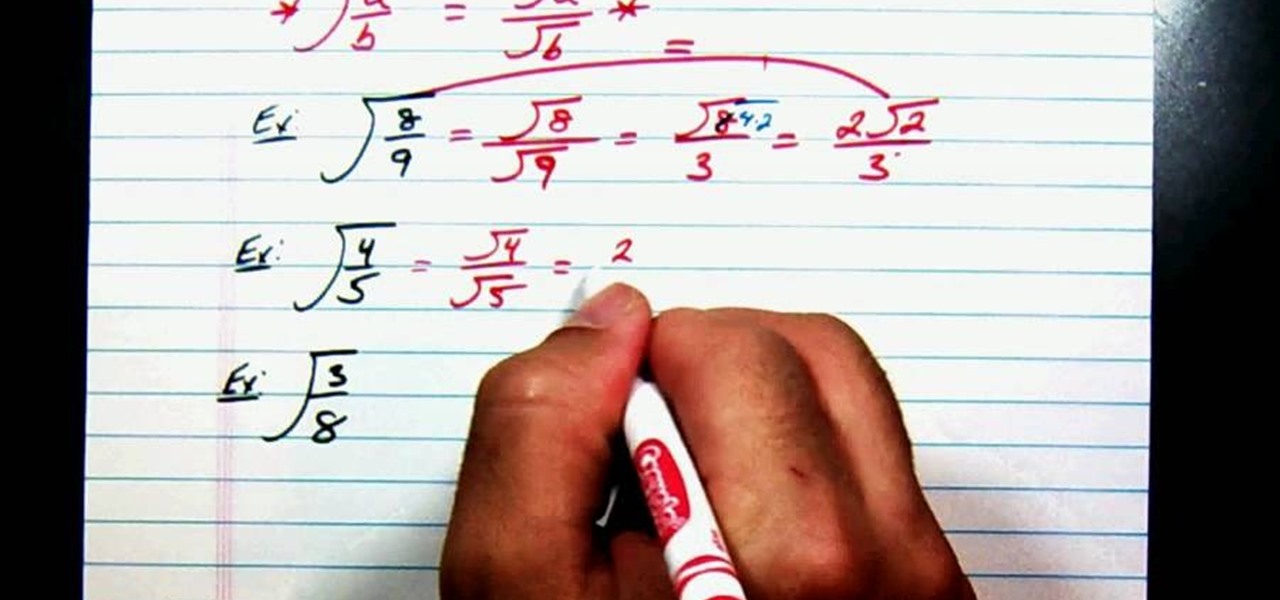
How To: Simplify rational radicals
From Ramanujan to calculus co-creator Gottfried Leibniz, many of the world's best and brightest mathematical minds have belonged to autodidacts. And, thanks to the Internet, it's easier than ever to follow in their footsteps (or just study for that next big test). With this free math lesson, you'll learn how to simplify rational radical expressions.

How To: Simplify radicals which are not perfect squares
Need help reducing radical expressions without perfect square or cube roots? Take heart: this free math lesson will ensure that you know everything you need to know for that next big test. Examples include square roots, cube roots, and 4th roots. You'll also learn a technique to simplify n-root expressions as well as how to simplify variables in radical expressions.
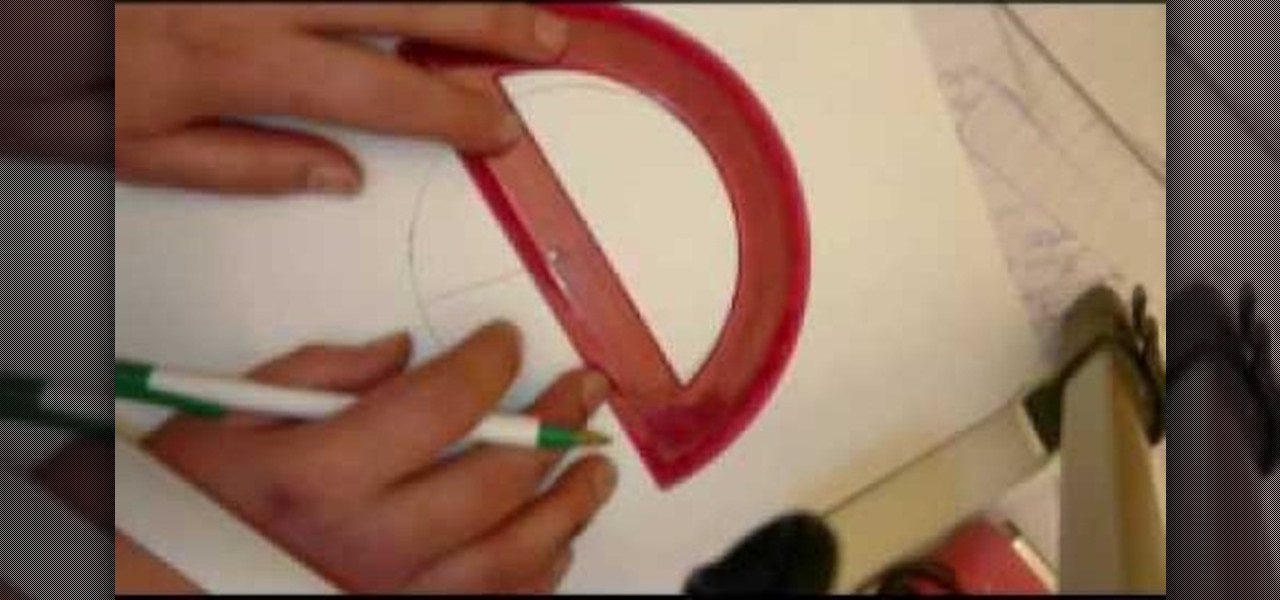
How To: Use a protractor to make a pie chart
If you have a circular or semicircular protractor like the one used in this video, making a pie chart is as easy as – well — pie. This will teach you how to use your protractor to measure out each individual slice in your pie chart. Learn how to visualize statistical data through hand-drawn pie charts with this free video math lesson.
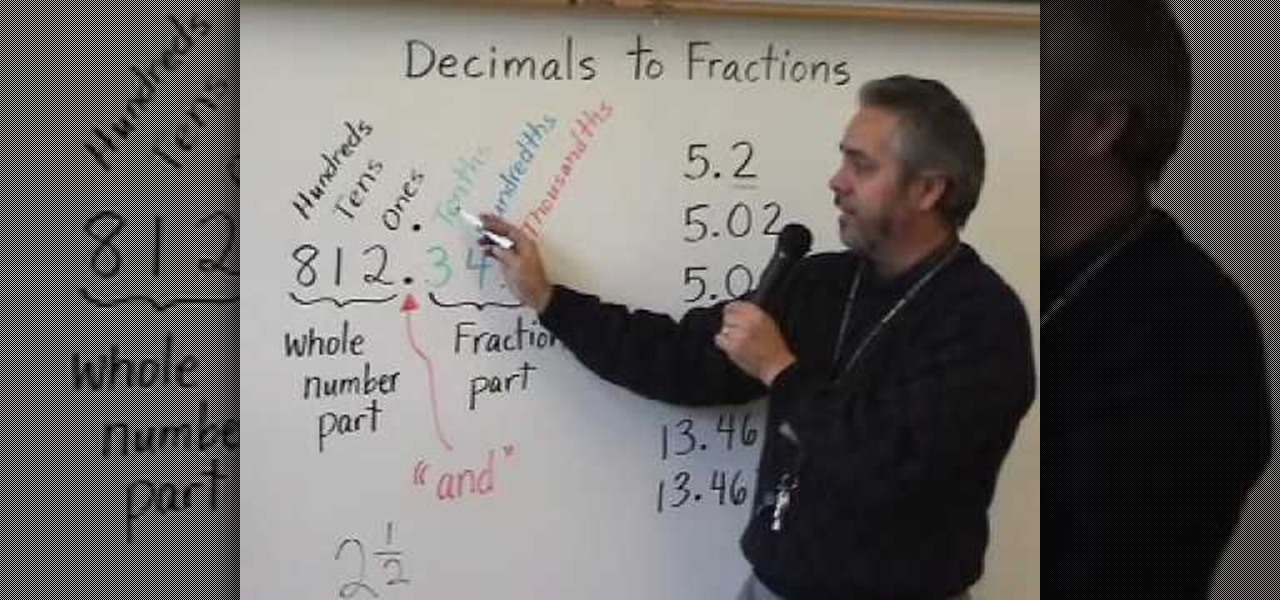
How To: Change decimals to fractions
For certain equations, you will need to convert decimal numbers into fractions. If this is the case, there are a few quick steps you will need to take to do so.
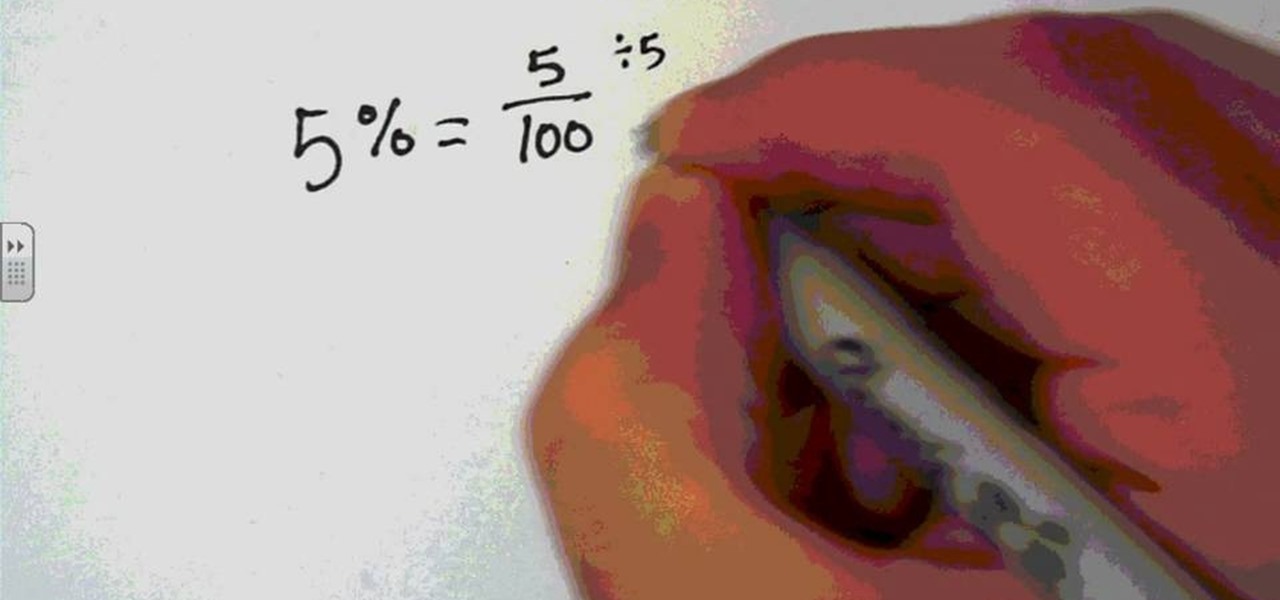
How To: Convert percents into fractions
Percents are handy for displaying statistics or labeling objects such as sale items in a store, or ingredient labels. However, in a math equation, a percent is a bit difficult to use. Therefore, you will need to convert your percents into an easier type of number form.
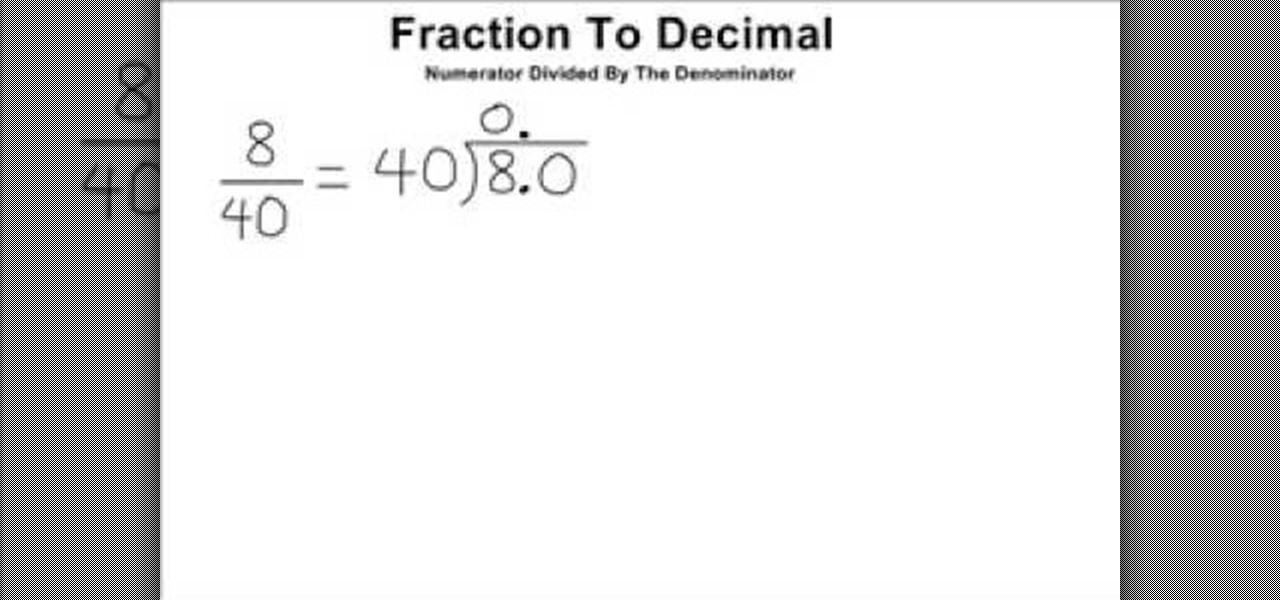
How To: Change a fraction into a decimal
Sometimes it is much easier to work out an equation if your numbers are in decimal form instead of fractions. This is especially useful if you are using a basic calculator.

How To: Convert decimals into fractions and percents
Decimal numbers, fractions and percents are pretty much three versions of the exact same value. In this tutorial, learn how to work with all three and convert them within each other.
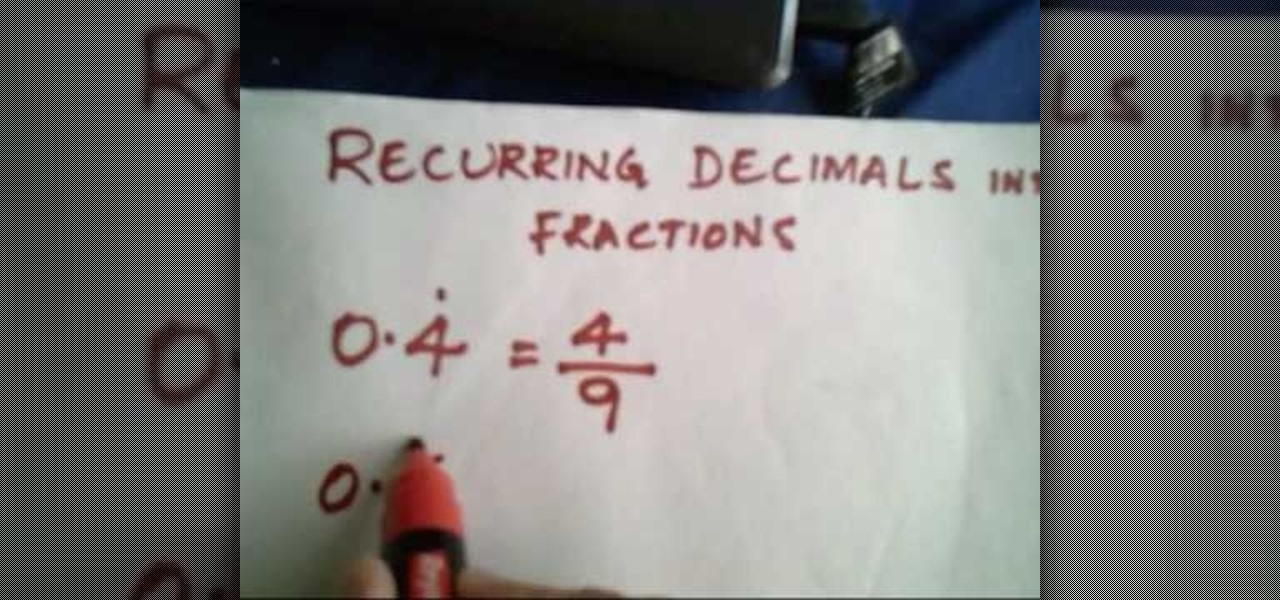
How To: Get a fraction from a recurring decimal
In order to pass that big Algebra test you will need to know how to get a fraction from a number with a recurring decimal. If you are looking for a shortcut, look no further than this tutorial.

How To: Graph a linear equation using slope-intercept form
Are you "just not a math person"? Hogwash. Everyone seems to think that at one point in their life. With a little practice and study, math will become more and more easy to understand. Start your journey towards become a "math person" with help from this video, which teaches how to graph a linear equation using slope-intercept form.




